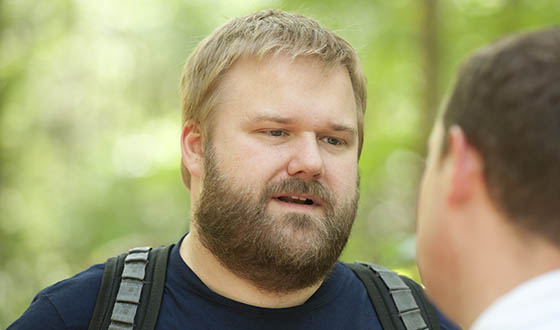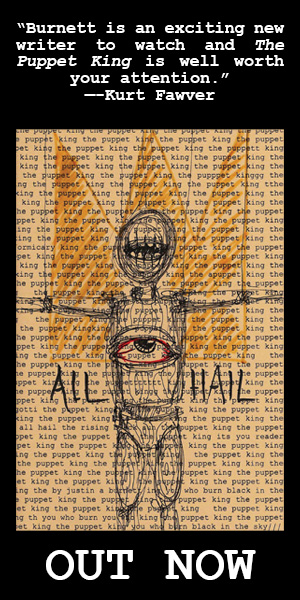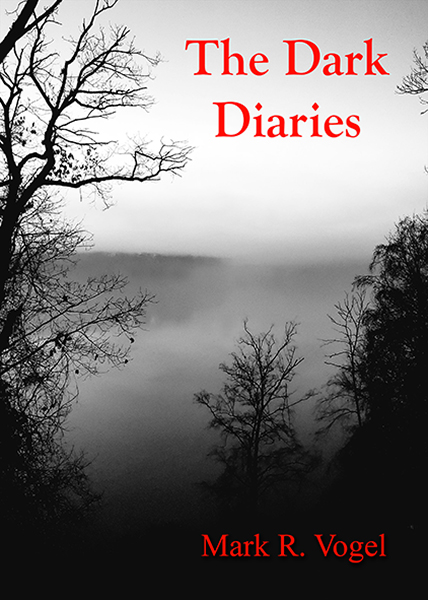There’s a few ‘hints’ of spoilers in this one but no direct spoilers.. Enjoy!
Robert Kirkman, the executive producer and writer of AMC’s The Walking Dead, talks about the new season’s more optimistic direction and why the character from the show that he’s most like is already dead.
Q: Which episodes are you writing this season?
A: I’ve written Episode 3… I’m also writing Episode 9. Episode 9 will probably be the episode that’s closest to a direct adaptation from the comic book aside from the premiere episode. It’s been a lot of fun for me working on them because I’m basically just rewriting something I’ve already written, which means I get to go back in and go, “Woah, what’d you do there? Let’s fix that.â€
Q: How has working on the show affected the way you write the comic, if at all?
A: One of my hugest efforts in this entire ordeal is to make sure that the show doesn’t change how I do the comic… I want to keep the comic pure. I don’t want anybody to say, “Oh, well the comic was really good and then the show came along, and then the comic got different,†because I want to maintain that consistency. But I will say that working in the writers’ room with all the other writers and working on the show as long as I have, I feel like I’m maybe a little bit better of a writer, I hope… I’m having a lot of very cool and interesting experiences on the show… and I feel like I’m able to put that to work in the comic that makes it better than it ever would have been otherwise.
Q: How would you compare Season 3 to Season 4? How are they going to be different?
A: I can argue that this season has a higher level of optimism than the show has had thus far, so that gives me something to look forward to. And also I’ll say that when you get to Season 4 on a show, especially a show like The Walking Dead, you realize that you’ve been around for a while and people may start to think, “I’ve got this show figured out. I know how they do things on this show.†And a tremendous amount of effort has been put towards keeping the audience guessing and doing newer and more interesting things and changing what The Walking Dead is, in a way that’s very true to everything that people love about The Walking Dead but that brings in a lot of very cool new and unexpected elements.
Q: What was your favorite moment from Season 3?
A: I really loved the return of Morgan [Jones], and just that exchange between Rick and Morgan and how it stripped the show down to these two men. And it called back to the first episode of the series, which to me was kind of a hallmark for the show, because those two men in that room are absolutely 100% completely different than the two men having a discussion in the first episode. And that really was a singular moment where you can see what this show is about… and really see the effect that this world has had on these two characters. I think it was a pretty great one.
Q: There were several notable deaths last season. Does killing off these characters ever get any easier for you?
A: It is an extremely difficult part of this process. I don’t want fans to ever get the sense that there’s a particular level of glee or a cavalier attitude towards those kind of plot twists. They’re always very difficult decisions, and it’s very hard on us as creative people to lose these tools in the toolbox, so to speak. We don’t get to write Andrea’s stories in the show anymore. That’s a big moment. That was a huge character for us. And everything that comes after that and all the new and interesting things that it does to the story makes it worthwhile, but it still makes that decision extremely difficult to make and there’s a real sense of loss there.
Q: Have you changed your mind at all about not wanting to direct an episode?
A: No, not at all. I just watched Dan Sackheim direct Episode 3 [of Season 4], and watching all the work that he’s doing, I’m like, “Yup, nope, nope, that doesn’t interest me.†I’ll continue writing. That stuff’s fun.
Q: There are a lot of The Walking Dead fans now who hang around in Senoia, Georgia, where you film. What’s that like for you?
A: It’s like going to a comic book convention because when I go to a comic book convention now it’s a little bit like George Clooney going to the grocery store: Everyone knows that I’m the guy that writes the comic book, and I get recognized pretty much everywhere I go. It is kind of fun… It’s also pretty cool that you can come to this little town in Georgia and see all these landmarks from the show and just walk the streets of Woodbury in a sense.
Q: How much do you consider how you would act in certain situations, when writing the show? For example, would you have given Michonne to the Governor?
A: [Laughs] No, never in a million years. To a certain extent it is thinking about how you would react or doing the opposite of how you would react in certain situations and that’s kind of how I look at what writing is: It’s looking at things through the lens of yourself… Part of the fun of this show is sitting on your couch and thinking, “What would I do if I had to make that decision?†Or, “Who would I save if I had to make that decision?†It’s really cool playing “what if,†and the writers do it as much as the viewers do.
Q: Which character are you most like on the show?
A: There hasn’t been a character cowardly enough or lazy enough to embody me just yet, but I do plan on incorporating that at some point.
Q: And then your character will be quickly bitten by a walker…
A: Yeah, a lot of the corpses are very much like me in the show. Were I to exist in this world, I would die very quickly.





